#nano
Ask The Best And Brightest: What Price Tata Nano?
Honda Exec: Chinese and Indian Automakers Could "Blow Up The Distribution Chain"
The prospect of US launches by Chinese and Indian auto brands like Tata and BYD have at least one of the established US-market players in a paranoid froth. Honda VP John Mendel revealed a few of the nightmare scenarios that keep him up at night to USA Today [UPDATE: more on Mendel’s fears at Automotive News [sub]]. One, inspired by BYD’s plans for a 2010 US launch without a distribution channel in place, is that newcomers could skip the dealer model altogether. Mendel worries that “warehouse stores or electronics stores” ( sound familiar?) could be used to cut dealers out of the loop, “blowing up” business-as-usual for US distribution strategy.
The $220,000 Nano
The world’s supposedly cheapest car ($2,500 apiece) will cost $220,000 when Mumbai-based D.C. Design is through with it. They will keep the car’s snub-nosed shape, everything else has to go.
The standard two-cylinder 624cc, 33-horsepower engine will be replaced by a 1600cc engine. To make room for the motor, the back seats will be removed. The car will get new brakes, new suspension, and bigger 20-inch wheels to allow for the top speed of 200 kilometers per hour (124 mph).
India Auto Expo: The Nano Warriors Assemble
Quote Of The Day: Coming To America Edition
We also recognize there is a market (for the Nano) not only in developing countries, but possibly in the developed countries. For the United States we need a car which has a larger engine and we need additional crash test modifications and we are in the process of doing it.
Ratan Tata at today’s India Auto Expo [via Automotive News [sub]], suggesting that the world’s cheapest car could eventually be sold in the US. Fiat is already partnering with Tata to jointly sell the Nano in Latin American markets, so there’s a chance that the Indian city car could eventually show up at Chrysler dealerships.
Winterkorn: No 13th Brand For VW
VW CEO Martin Winterkorn is a superstitious man. He doesn’t want to add a 13th brand to his (or rather Piech’s) large collection. (Coincidentally, 12 is the number of Piech’s children. More or less. Nobody is quite sure,) “There are some who knock on our door. Some really want to come under our roof as they see we’re on a good path strategically. But we are satisfied with the current line-up,” Winterkorn said to Wirtschaftswoche. Specifically questioned about Volvo or (gasp) Daimler, Winterkorn answered: „There are many who would like to snuggle in VW’s cozy bed. Thank you, not interested.” Instead, he’s re-thinking the line-up of his new acquisitions: “I could imagine a smaller Cayenne derivative. Or a Porsche below the Boxster. This is under discussion.”
Yet Another NanoSwatter. By GM And SAIC
Let’s get small: The new 50:50 joint venture between China’s SAIC and GM may plan to launch an entry-level low-cost car for the Indian market, say’s India’s Wheels Unplugged.
India's Nano Wars
With Tata unable to produce enough Nanos to keep up with demand, more automakers are gunning for its entry-level segment. Renault-Nissan is teaming up with its Indian-market partner Bajaj to produce a car that’s even cheaper to produce than the Nano. “I can tell you the cost of this car would be lower than any car today made in India,” Renault-Nissan CEO Carlos Ghosn tells Gasgoo, adding that a lower production cost wouldn’t guarantee that the new car would be priced lower than Nano. The Renault ULC, as the low-cost car is being called during development, will be available in India in 2012, by which time GM and Toyota could have competing models on the market. Ford’s recently-announced Indian market low-cost car, based on the discontinued previous-generation European Fiesta, will be positioned above the Nano. And that strategy also appeals to Honda. The Motor Company tells the WSJ that rather than competing directly with the lowest-cost segment, a sub-Fit (Jazz, as it’s known globally) hatchback will be introduced around 2012 to compete with Ford’s model. The Jazz/Fit currently sells for about $15,000 in India, leaving a huge window between there and the Nano’s approximately $3,000 price price tag.
Kirkland Signature Nano?
Want To Start Your Own Little Car Factory?
I’m thinking about opening a car factory. A really small one. Tata would sell me their Nano in kit form. I’d have it assembled (using cheap Chinese labor, of course) and sell it as the Bertel car. Entirely possible. Tata may allow small car assemblers to put together its Nano and sell it under their own brand, India’s Business Standard reports via Reuters.
Tata Motors. Profile of an Indian Car Company in Trouble
India’s Tata has gone from darling to dumpling in just a year. The high profile Nano People’s Car project still hasn’t gone into production, and the $2.3b purchase of Jaguar and Land Rover now seems spectacularly ill-timed. Business Week recently covered the story with these great opening notes: “What a difference a year makes.” India is in the throes of its own economic crisis; thanks to high inflation, high interest rates, tight credit markets, excessive corporate debt and a suddenly spending averse middle class. Pretty much like most places in the world, but a little different.


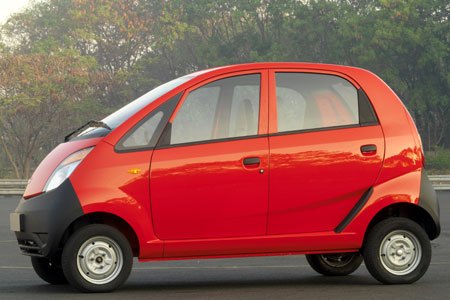
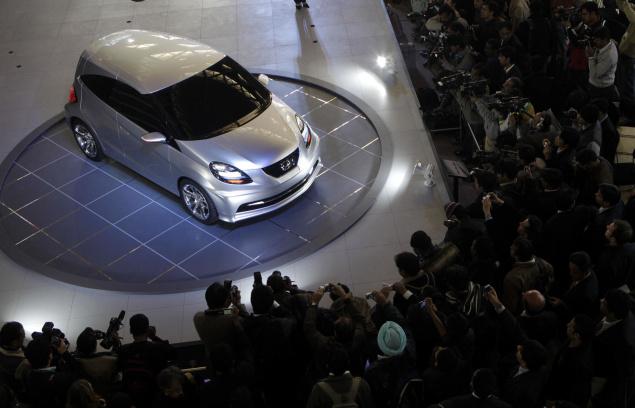
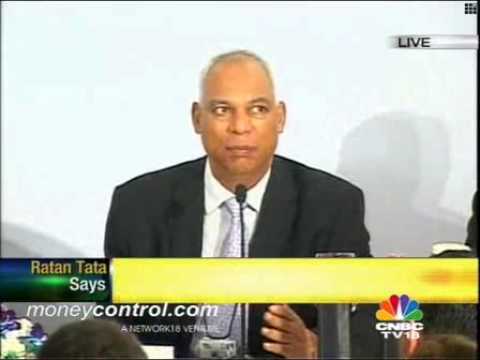

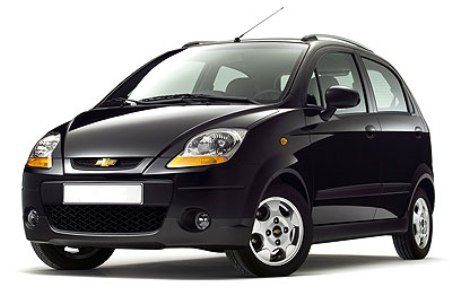

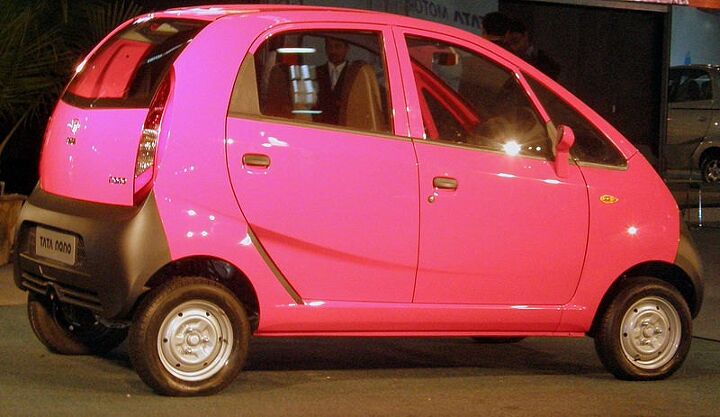
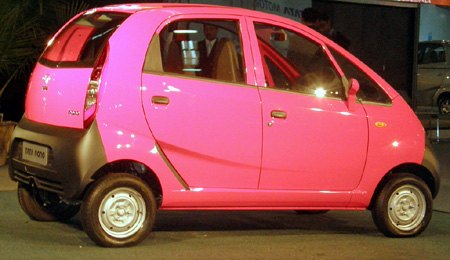













Recent Comments